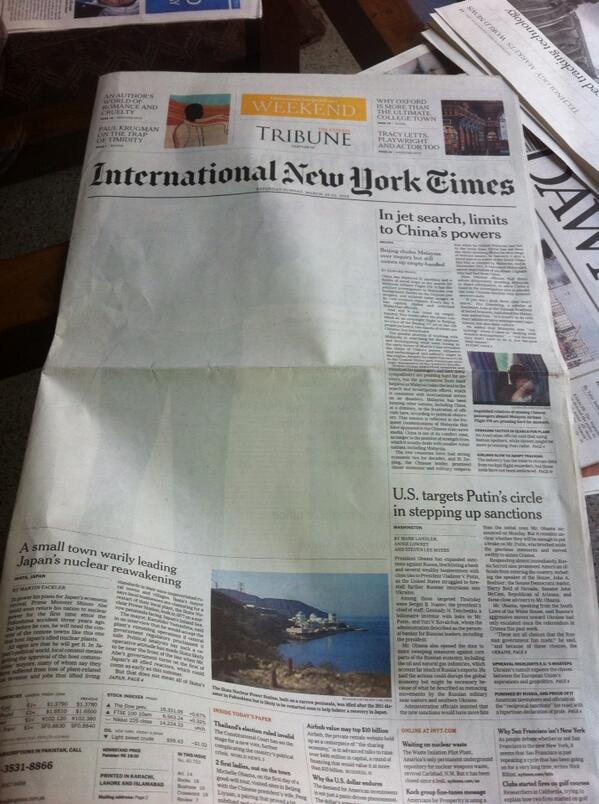By Sana Saleem
Pakistani printers removed a front-page story titled “Imperiled Bloggers of Bangladesh” from the 2 January 2016 edition of the international version of The New York Times, leaving blank spaces behind.
Salman Masood, the New York Times’ correspondent in Pakistan, tweeted the two different versions of the paper:
The article describes the killings of Bangladeshi bloggers who write about secularism, atheism, human rights and civil liberties. It begins by profiling Asif Mohiuddin, who survived a stabbing attack in 2013 and was soon after imprisoned for his progressive writings. His story is similar to those of numerous other Bangladeshi bloggers who have been targeted and sometimes killed after being singled out and accused of “atheism” by religious hardliners. Atheists have the same rights as all other citizens in Muslim-majority Bangladesh, but the country's secular government has nevertheless done little to discourage the attacks or bring the killers to justice.
The fact that the front-page story was removed in Pakistan by the Express Tribune, the printing partner of The New York Times, created a stir on social media. Many pointed out that this censorship is nothing new in Pakistan.
Some even compared it to authorities’ iron grip on media during the rule of General Muhammad Zia-ul-Haq from 1978 to 1988:
Blank columns of the NYT reminiscent of the Zia era
#Pakistan #censorship twitter.com/salmanmasood/s…



No comments:
Post a Comment